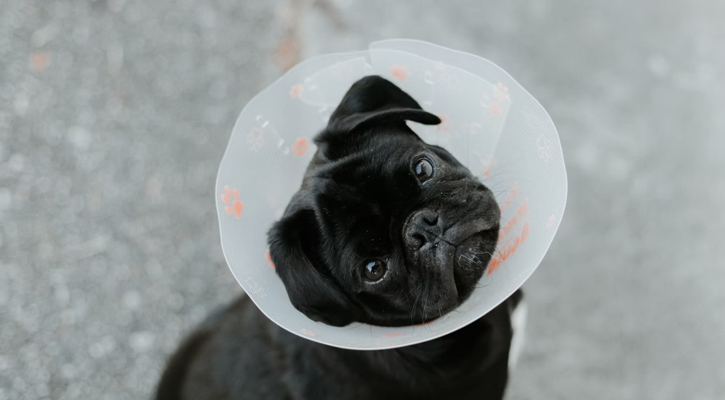Vaccines at Sam Bass Veterinary Wellness

At Sam Bass Veterinary Wellness, your Round Rock veterinarian will custom- tailor a vaccination schedule suited to your pet’s individual lifestyle and risk profile. Please read below the information on protecting your pet through vaccinations.
Vaccines for Your Pet – For Their Health and Yours
Vaccinating your pet is an important component of your pet’s overall health, protecting both your pet and your family from disease. Vaccines are products designed to trigger protective immune responses and prepare the immune system to fight future infections from disease-causing agents. Vaccines stimulate the immune system’s production of antibodies that identify and destroy disease-causing organisms that enter the body.
At Sam Bass Veterinary Wellness, your veterinarian will make a recommendation to schedule your pet vaccines in Round Rock, Tx. For cats and dogs, the law requires an updated Rabies vaccination administered by a licensed Veterinarian. Other vaccines will be recommended based on your pet’s age, history, risk factors, and lifestyle to ensure optimal protection if your pet is exposed.
5 reasons to vaccinate your pet
- Vaccinations can prevent many pet illnesses, including those with high mortality (death) and morbidity (sickness) rates such as canine parvo and distemper.
- Vaccinations can help avoid costly treatments for these preventable diseases.
- Vaccinations prevent diseases that can be passed between animals and also from animals to people.
- Diseases prevalent in wildlife, such as rabies and distemper, can infect unvaccinated pets.
- In many areas, local or state ordinances require certain vaccinations of household pets.
Why do puppies and kittens require a series of vaccinations?
Very young animals are highly susceptible to infectious disease because their immune system is not yet fully mature. They receive protection through antibodies in their mother’s milk, but the protection is not long-lasting and there may be gaps in protection as the milk antibodies decrease and their immune system is still maturing. If the mother does not have a strong immune system herself, she may not provide adequate protection through her milk.
The first dose of a vaccine serves to prime the animal’s immune system against the virus or bacteria while subsequent doses help further stimulate the immune system to produce the important antibodies (memory cells) needed to protect an animal from diseases.
To provide optimal protection against disease in the first few months of life, a series of vaccinations are scheduled, usually 3-4 weeks apart. For most puppies and kittens, the final vaccination in the series is administered at about 4 months of age; however, your veterinarian may alter the schedule based on an individual animal’s risk factors.
Puppies and Dogs
Recommended vaccine schedule according to the American Animal Hospital Association (AAHA):
DHPP (canine distemper, parvo): Starting at six weeks of age, the distemper, hepatitis, parvo and parainfluenza (DHPP) vaccine is given, with boosters every 3 to 4 weeks until 16 weeks of age. At Sam Bass Veterinary Wellness, we typically vaccinate on an every 3-week schedule for three to four booster vaccines. The DHPP is then given annually.
Bordetella (kennel cough): Starting as early as six weeks, an intranasal or oral Bordetella may be given once and boostered every 6 months. This is given to prevent Kennel Cough, a highly contagious respiratory disease affecting dogs. Most boarding facilities and grooming salons will require your dog to have this vaccine.
Rabies: This vaccine is required by Texas State law and is given once between 12 and 16 weeks of age, then at one year. Rabies vaccines are then given either annually or as an every three-year vaccine as required by local and state law. Rabies is a deadly virus that can be transmitted to humans and it is not curable. Rabies infected animals and people die from this disease if not vaccinated.
Leptospirosis vaccine: Given in combination with DHPP in puppies with their second and third booster starting as young as 8 weeks. This vaccine is highly recommended for any dogs that frequent parks; live in the country; drink from or play in ponds, rivers, puddles, and lakes; or in areas frequented by cattle, rodents, dogs, or raccoons. Leptospirosis is a serious bacterial infection that can be transmitted to humans. This bacterium is transmitted through contact with urine of cattle, rodents, dogs, or wildlife.
Canine Influenza Virus (CIV) Vaccine (H3N8 and H3N2) – ‘The Flu’: This bivalent vaccine (both strains of influenza in one vaccine) is given once then boostered 2 to 4 weeks later. This vaccine is given annually thereafter. Some boarding facilities and grooming salons required the CIV vaccine. This vaccine helps protect dogs who potentially come in contact with other dogs infected with the highly contagious respiratory virus. This virus can also be passed orally, such as drinking from shared water bowls.
Crotalus Atrox Toxoid (Rattlesnake Vaccine): This vaccine is really a toxoid that helps minimize the serious morbidities and mortality rate from a rattlesnake or copperhead envenomation. The Rattlesnake Vaccine is given once and boostered four weeks later, then annual boosters after.
Kittens and Cats
FVRCP: Starting no earlier than six weeks of age, the feline upper respiratory vaccine (herpes virus 1, calicivirus, panleukopenia), is given, with a booster 3 to 4 weeks later. At Sam Bass Veterinary Wellness, we vaccinate kittens at about 8 weeks with boosters every 3 weeks for a total of 3 vaccines.
Feline Leukemia (FeLV): The feline leukemia vaccine is given around 8 weeks if indicated and boostered 2 to 4 weeks later. In kittens, the booster should be given at or after 12 weeks of age. The doctor will discuss feline leukemia and feline immunodeficiency virus (FIV) testing prior to giving this first vaccine.
Rabies: This vaccine is required by Texas State law and is given once between 12 and 16 weeks of age, then at one year. Rabies vaccines are then given either annually as required by state and local law. Rabies is a deadly virus that can be transmitted to humans and it is not curable. Rabies infected animals and people die from this disease if not vaccinated.
Are there risks to vaccinating my pet?
Any type of medical treatment has associated risks, but the risk must be weighed against the benefits of protecting your pet, your family and your community from potentially fatal diseases. The majority of pets respond well to vaccines.
The most common adverse responses to vaccination are mild and short-term. Serious reactions are rare. An uncommon but serious adverse reaction that can occur in cats is tumor growth (sarcomas), which can develop weeks, months, or even years after a vaccination. Improvements in vaccination technology and technique have greatly reduced the occurrence of sarcomas. Other adverse reactions include:
- Persistent vomiting or diarrhea
- Itchy skin that may seem bumpy (“hives”)
- Swelling of the muzzle and around the face, neck, or eyes
- Severe coughing or difficulty breathing
- Collapse
- A small, firm swelling under the skin may develop at the site of a recent vaccination. It should start to disappear within a couple weeks. If it persists for more than three weeks, or seems to be getting larger, you should contact your veterinarian.
Always inform your veterinarian if your pet has had prior reactions to any vaccine or medication. If in doubt, wait for 30-60 minutes following vaccination before taking your pet home. In a pet with a prior reaction, pre-medications can be given to prevent a reaction.
Pet Vaccines Near You
The veterinarians at Sam Bass Veterinary Wellness again will look at your pet, your lifestyle and associated risk, and help tailor a vaccination protocol that specifically addresses everyone’s concerns. Mainly, we are here to you’re your pet live longer, happier, healthier lives. Contact us today or Make An Appointment online.
